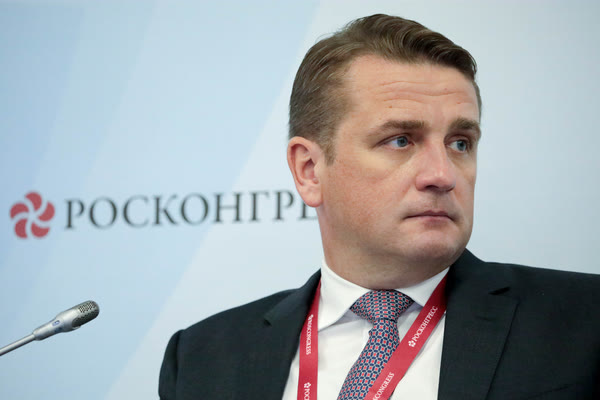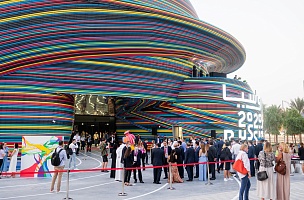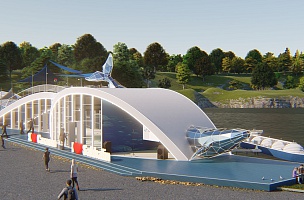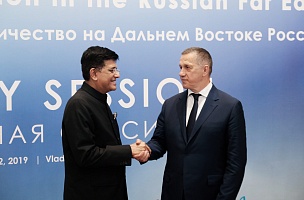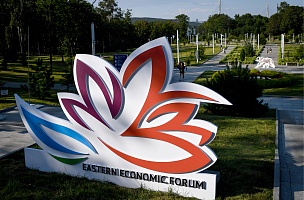KEY CONCLUSIONS
It is too early to draw final conclusions on the results of the investment quotas programme
“Too early to sum it up. We got the first vessel earlier this year, and we should be getting two more out of eleven in 2021. They will be fully in operation next year. We can talk about how satisfied we are when we see our bottom-line results,” Gleb Frank, Chairman of the Board of Directors, Russian Fishery Company.
“I agree that investments in the ocean fleet are necessary and they do exist, but my personal opinion is that it is too early to draw conclusions. So, they are probably necessary, and we need to continue this programme, but as of today we still have not had a chance for implementation,” Aleksandr Verkhovsky, Founder, Hydrostroy.
Investment quotas have started the mechanism for building Russian ships
“The mechanism of investment quotas, among other things, provides for more determination from Russian fisheries to build ships, and to build them at domestic shipyards,” Gleb Frank, Chairman of the Board of Directors, Russian Fishery Company.
“As we started building the fishing vessels, we discovered certain aspects that were either new or left well behind in the Soviet years. Before that, the ships had always been built outside of Russia,” Alexey Rakhmanov, Chairman of the Board, Chief Executive Officer, United Shipbuilding Corporation.
The fishing industry is changing globally
“I accidentally came across a thing that our foreign colleague had said, about the industrial revolution taking place in the Russian fishery. And it seems to me that it is too early to draw all the conclusions, but it is a fact that we are changing the economy of the fishing industry in ways that are revolutionary,” Ilya Shestakov, Head, Federal Agency for Fisheries (Rosrybolovstvo).
“The industry is at a turning point, facing a choice of direction. The stereotype of the industry’s operation has been broken. It was disrupted by the pandemic, among other things: the regular supply chain was broken, and so was the sales chain, which went through China to a very large extent,” Aleksandr Verkhovsky, Founder, Hydrostroy.
PROBLEMS
Increased timeframes of shipbuilding
“The main problem with the construction of ships is the timeframe. The problems, as it was said before, are in the project specifications and the limitations of the pandemic,” Aleksei Osintsev, President, Association of Fishing Fleet Shipowners.
“There is a problem that has to do with the years when this process began, when the second part of the programme, InvestQuota 2.0, was launched. Clearly, the construction of plants can begin as soon as the legislative initiatives are adopted. But with the fleet it is a little more complicated than that. So far, we have optimistically set our target for the year 2023, but I am afraid that we will start intensively building the fleet in 2025 at best,” Ilya Shestakov, Head, Federal Agency for Fisheries (Rosrybolovstvo).
SOLUTIONS
Serial shipbuilding to reduce the timeframes of construction
“Serial building is the key for construction of ships in the future,” Aleksei Osintsev, President, Association of Fishing Fleet Shipowners.
“Much depends on how this project is calibrated and carried out with high quality. I fully support that serial production is important. It significantly reduces the cost of the project and reduces the timeframe for its implementation. I think that both shipbuilders and fisheries did not fully understand how it would be organized when they started this process. Because we had never dealt with these things: the fleet, the vessel design,” Sergey Tarusov, Chairman, Lenin Collective Farm Fishery.
In addition to investment quotas, other programmes of government support for the industry are needed
“Investment quota is not a financial incentive, in and of itself. Perhaps, neither success nor cost reduction can be achieved without applying the support from the government,” Aleksei Osintsev, President, Association of Fishing Fleet Shipowners.
“Of course, it is necessary to consider how the government could provide insurance for the investors, in case the obligations on part of the latter are fulfilled,” Sergey Nesvetov, Executive Director, North West Fishing Consortium.
“I am talking about the liability insurance mechanism. If a shipyard attempts to take out an insurance on its liability to the fisheries, the cost of such insurance would be huge,” Alexander Krutikov, Chairman of the Supervisory Board, Investment Partnership "Ryba.RF" Corporation.
Quotas need to be extended, balancing the support for shipbuilding and onshore fish processing
“We suggest that the investment quotas for the Far East should be extended. We need them so that we are at least at 80–90% of processing capacity in the Far East. We will certainly continue to implement the programme for crab processing,” Ilya Shestakov, Head, Federal Agency for Fisheries (Rosrybolovstvo).
“I fully support the idea that the investment programme should be continued. Because from all that is going on in the world, we understand that the emphasis on deep processing was timely and correct. Most importantly, it would allow us to eliminate the dependence of a Russian processor on the processors in other countries,” Sergey Tarusov, Chairman, Lenin Collective Farm Fishery.
For more information, visit the ROSCONGRESS.ORG Information and Analytical System


